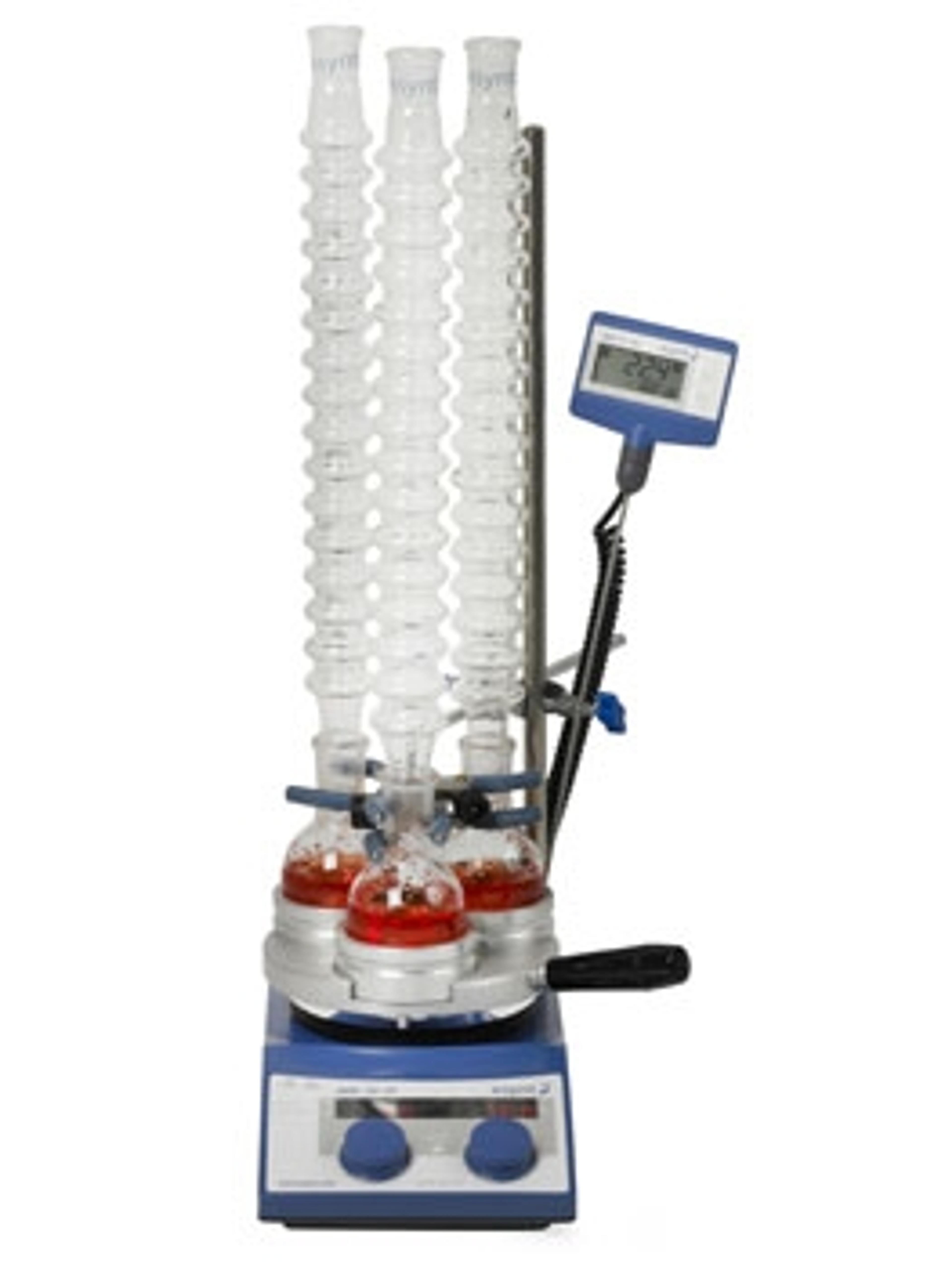Report Demonstrates High Operational Safety & Costs Savings of Asynt Air Condenser
5 Jun 2017
Asynt reports on an independent evaluation, from a leading UK university, detailing the performance of the CondenSyn MINI air condenser for safe use in their research and teaching laboratories.
Scientists worldwide are increasingly concerned about the safety, cost and indeed the environmental impact of running their laboratories. For synthetic experiments a reflux condenser is often required and is therefore an essential tool for both research and teaching chemistry. Condensers cooled by a circulating fluid such as water are effective and widely used, however they are often operated directly with tap water which creates an environmental and cost issue. The use of an Asynt CondenSyn air condenser negates the need for any recirculating coolant during standard reflux conditions.
A series of reflux experiments were undertaken using 25ml of a range of different common solvents in a 100ml 2-neck round bottom flask. Fitted to the flask were an internal thermometer and a standard 200mm long CondenSyn MINI air condenser. Reported results demonstrate minimal loss of solvent ranging from water (0.025% / hour) to dichloromethane (0.85% / hour). Asynt also offer a variety of different length CondenSyn to suit larger capacity flasks.
Based upon the average consumption of water by a Liebig condenser (2 liters / minute), at a standard cost of £1.00 /m3 supplied and £1.10/m3 waste, the authors of the report show that using a single CondenSyn MINI air condenser can save £300 - £1450 / year.
Just 20cm long and fitted with either B14, B19 or B24 adapter as standard – the Condensyn MINI provides comparable vapor condensing performance to a Liebig water condenser but advantageously requires no cooling water for operation. Proven in over 1000 installations worldwide, the Asynt CondenSyn air condenser is an affordable high-surface-area air condenser which is both safe and operationally effective. The CondenSyn’s robust design uses a new borosilicate glass manufacturing technique and this, together with a proprietary multiple hyperbolic profile, ensures optimum heat removal as vapors pass along its length. CondenSyn additionally incorporates a non-roll feature to help prevent accidents if left on a lab bench. Offering clear visibility of ongoing experimental reflux, the Asynt CondenSyn is also easy to clean and maintain.

